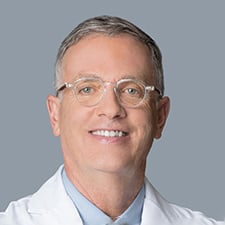Mid-Atlantic Permanente Medical Group (MAPMG) and The Permanente Medical Group (TPMG) are among the largest and most integrated multispecialty medical groups on the West and East Coasts. Together, their 11,700 physicians serve about 5.4 million Kaiser Permanente members in Northern California, Maryland, Virginia and Washington, D.C.—with one central vision: better health through preventive care, collaboration and innovation to solve common health care problems for patients and providers alike.
“We focus on disease prevention and integration of care across specialties,” said Richard McCarthy, MD, executive director of MAPMG, which is a member of the AMA Health System Program that provides enterprise solutions to equip leadership, physicians and care teams with resources to help drive the future of medicine.
“The tenets of value-based care are different than fee-for-service care. Our capitated model creates opportunity for innovation and focuses on managing a population of patients and their health challenges,” said Dr. McCarthy. “We focus on patient satisfaction. We also focus on physician and staff satisfaction so that we can make sure that we retain the best."
MAPMG and TPMG are two of the Permanente Medical Groups that negotiate with the Kaiser Foundation Health Plan for a yearly rate to provide comprehensive care for Kaiser Permanente patients. The model allows for both inpatient and outpatient services and coordinated care across specialties.
This structure incentivizes prevention, quality and long-term outcomes, rather than high-volume, high-cost interventions. The results make a compelling argument for their specific recipe for value-based care.
For example, Kaiser Permanente patients are diagnosed with Stage 1 cancer at rates 50% to 70% higher than the national average. And overall, Kaiser Permanente Mid-Atlantic patients live six to eight years longer than the national average.
In diabetes care, Kaiser Permanente consistently ranks in the top percentiles nationally.
“We’re in the top 5% for eye exams and kidney evaluations, top 10% for statin therapy and top 25% for blood pressure control for patients with diabetes,” he added.
Collaboration and technology are key
A core principle of the Permanente model is collaboration—across specialties, disciplines and departments. Physicians have direct access to integrated and detailed analytics, allowing for real-time tracking of patient outcomes and identification of trends across cases. This creates a continuous learning environment where physicians are empowered to make improvements and share successful strategies across the system.
For example, Kaiser Permanente is able to use augmented intelligence (AI) “to do pretty amazing things that really support physician practice,” Dr. McCarthy said. “Everything from ambient listening that decreases charting time to second reads for cancer with AI in pathology.”
The combination of collaboration and technology allows medical teams across different specialties to be able to play roles in preventive care when needed.
“I’m a neurologist in practice, but my team schedules mammograms, colorectal screenings, pap smears,” said Dr. McCarthy. “We automatically order diabetes testing, and those results will go to their primary care doctor. If I see a patient with elevated blood pressure, follow ups will be set up for them automatically. That’s how we achieve our hypertension marks as one example.”
This commitment to quality has not gone unnoticed.
Of the 418 commercial health plans rated by the National Committee for Quality Assurance, Kaiser Permanente in the mid-Atlantic is “one of only three to receive a five out of five for quality and service,” Dr. McCarthy said.
Another noted area of prevention is lung cancer screenings.
“We have among the highest rates of low-dose CT screenings for patients at risk for lung cancer in the country,” Dr. McCarthy said. “We use data to identify patients, offer the screening, and our teams of pulmonologists and thoracic surgeons review every image to determine follow-up care.”
Partnerships extend quality
With 1,800 physicians across specialties, MAPMG has built one of the largest multispecialty groups in the mid-Atlantic. While MAPMG doesn’t own hospitals, it maintains partnerships that place its physicians and other health professionals inside area medical centers.
“We create Permanente Medicine in the hospital for our patients. We have our own hospitalists and specialists in many facilities,” Dr. McCarthy said. “Because of the consolidation of care, it’s a rewarding practice for both research and clinical care.”
Use data for improvements
MAMPG physicians and care teams use data as both a mirror and a road map. Chiefs of service regularly analyze performance data, identify “bright spots,” and build projects around scaling what works.
Using predictive modeling, care coordination and remote patient monitoring, hospital readmission has reduced by about 10%.
Patient education interventions and care management programs for various diseases, such as congestive heart failure, diabetes and pregnancy help support the primary care doctor to reduce readmissions.
“We decrease readmissions by about 30% through this work in our integrated system," Dr. McCarthy said. "Every adult over 18 has their own personal adult and family medicine physician, and every woman over 18 has their own personal ob-gyn physician. We can book follow-up appointments from the hospital, decreasing the hassle factor for hospital follow-up."
MAPMG's care management programs for various diseases also support primary care doctors in reducing readmissions and ensuring smooth transitions between inpatient and outpatient care.
Embrace virtual care
Virtual care is another area where Kaiser Permanente has made bold strides. In 2021, a 24/7 virtual urgent care was launched, connecting patients with physicians by phone or video within 30 minutes, anytime, day or night.
The service now operates across all Kaiser Permanente regions and has earned a 90% net promoter score, and it all started with transforming an idea into action.
Within MAPMG’s HealthConnect system, every physician has access to a digital “lightbulb” feature, allowing them to submit new ideas for projects or process improvements. If the idea is viable, the submitter leads a team to test and evaluate the change. If it works, it spreads across the system.
“Every project we do is led by a physician,” Dr. McCarthy added. “If you submit an idea, you own it. You run the team. We give you the support and resources to make it work.”
That mindset of innovation and ownership extends into training, leadership development and physician well-being. MAPMG offers extensive mentorship programs, equity and inclusion initiatives, and leadership training designed to help physicians grow alongside their patients.
Encourage curiosity, problem solving
MAPMG uses peer feedback and a culture of curiosity to drive improvement, further defining tangible value that comes from value-based care.
“It’s really important when you want to improve performance in a physician group to not use data as a weapon,” said Dr. McCarthy. “If you can build a culture of group accountability where everyone wants to see higher quality and better efficiency, then performance data doesn’t have to only be seen as good or bad. That takes up a great deal of trust.
“But along with that trust is also remembering the best solutions come from the people doing the work. Leadership needs to practice that trust as well,” he added.
As more health care systems continue to search for sustainable models and improvements to long-standing challenges for both patients and physicians, Dr. McCarthy sees MAPMG’s value-based approach as not just viable, but essential.
"Physicians need to take back the reins in terms of their input in fundamental aspects of health care delivery," he said. "The profession of medicine has changed from a world where physicians control health care to a world where health care is controlled by finance and hospital administrators.
“Again, the best solutions come from people doing the work,” Dr. McCarthy said. “I advise physicians to maintain balance in life, to have the discretionary effort to not only take care of patients but also think of the bigger picture of the population of patients they're serving."
Learn more with the AMA about value-based care, including ways to improve data sharing and best practices for payment methods.





